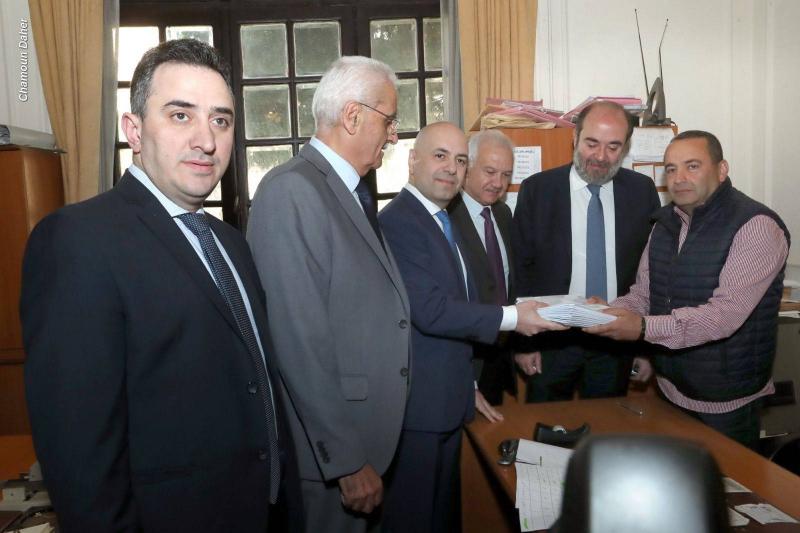A delegation from the "Strong Republic" bloc, including former Deputy Prime Minister Ghassan Hasbani and MPs Fadi Karam, George Okais, Ghias Yezbek, and Razi Al-Haj, has filed a challenge against Law No. 310/2023 concerning the extension of municipal and elective councils before the Constitutional Council, marking the first challenge submitted to it this year. Hasbani explained that they "filed this challenge on behalf of the Lebanese people who entrusted them with the agency in the ballot boxes to safeguard democracy and the people's right to choose local authorities and hold them accountable through elections." He asserted that they "took this step in coordination with a wide range of opposition forces, as a joint and integrated action, one of many coordinated steps among them."
He noted that "the law undermines the principle of democracy by extending municipal and elective councils, thus the challenge aims to preserve the Lebanese citizen's right to elect local authorities. We rely on the Constitutional Council not to be affected by political pressure aimed at delaying elections and undermining democracy," considering that "this challenge will be a stimulus for the government to conduct elections, obliging it to bear its responsibilities, and that nothing prevents it from holding them before the expiration of the year."
Hasbani hopes that "this challenge will be decided promptly and that the government will not evade its duty to conduct elections; otherwise, it is directly or indirectly declaring that we are a failed state incapable of fulfilling basic obligations and operating the public sector tasked with implementing these obligations."
For his part, Okais highlighted three postulates regarding this challenge: "First, the presence of the Lebanese Forces and the 'Strong Republic' bloc as a spearhead in the battle to preserve democracy whenever they see an assault on democratic traditions, and the postponement of municipal elections directly attacks the essence of democracy. Secondly, submitting the challenge today is a milestone in our battle against this authority, not the end of the battle. Regardless of the Constitutional Council's decision, we consider the practices of the authority to be unconstitutional and undermining democratic principles, and we will continue to oppose any attempts to undermine them. The government is obliged to hold elections today rather than tomorrow, and the Minister of Interior has repeatedly expressed readiness for that. There are no exceptional circumstances justifying the postponement except the will of some political forces trying to evade accountability to the people. Thirdly, confirming the unity of the opposition; this step today falls within the framework of working together to confront what the authority has committed against democracy."
In turn, Karam emphasized "the rejection of practices that undermine democracy at the national level," stressing that "the municipal election is a fundamental entitlement that cannot be allowed to be disrupted. There is always talk about a reform workshop, and we witness bids on this issue. Reform is not only financial but primarily political, administrative, and constitutional, and one of its most important pillars is the preservation of democratic entitlements, particularly municipal and elective elections, since our reliance on local authorities is very significant, especially in the absence of the state and its institutions."




